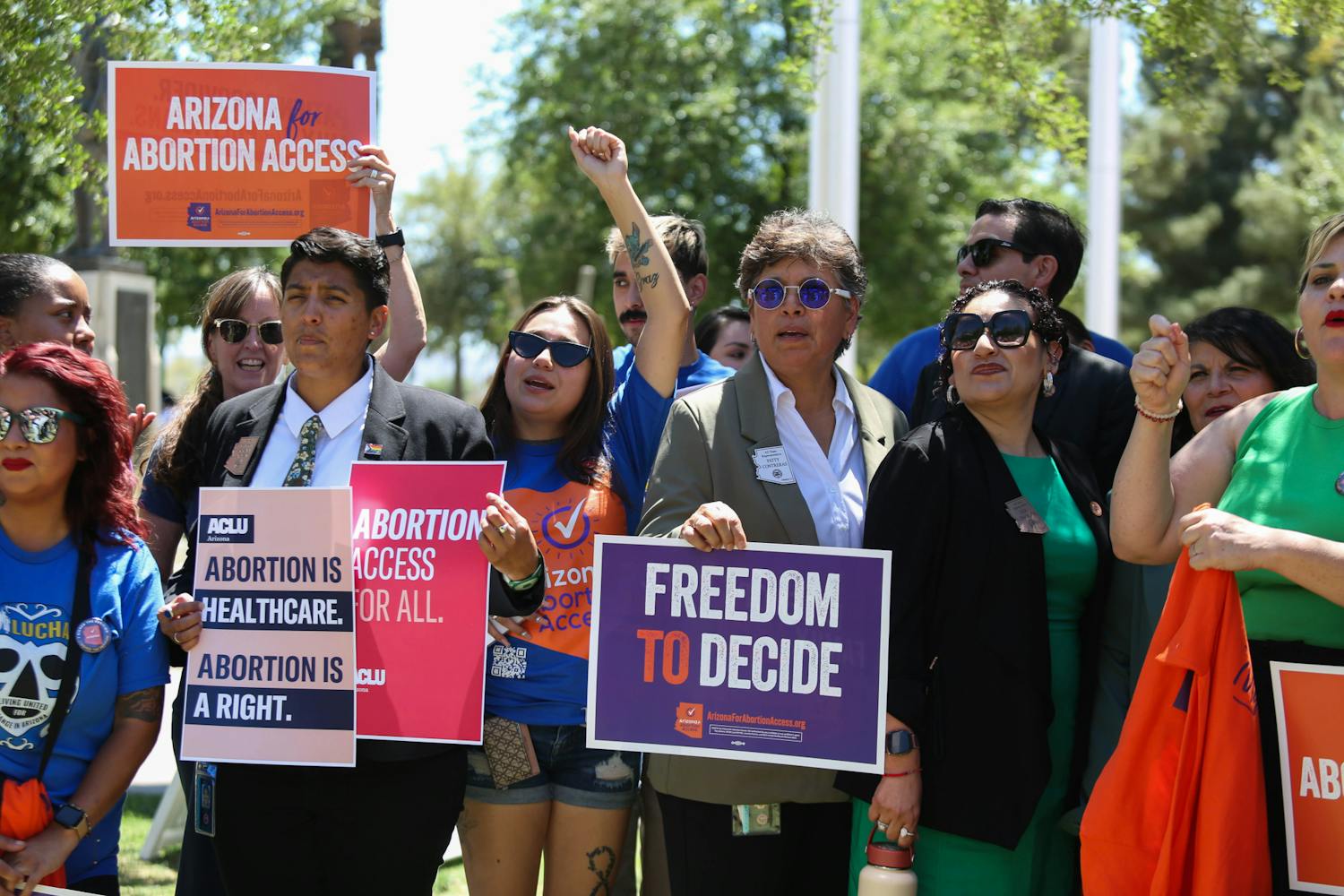Two years ago, I attended the Youth and Young Adult Rally for Life at ASU.
At the rally, I heard a testimony given by a young woman who was a rape survivor. She told of the horror, pain and embarrassment she felt. She told of the anger and hatred boiling within her. She told of the resentment and the confusion.
Then she talked about love. She talked about the new life growing within her. She talked about her resolve to find good amidst a terrible evil. She talked about the doctors who encouraged her to get an abortion because of the health complications that the pregnancy was causing.
She talked about the moment she almost didn’t make it.
When she was done talking, she called her son up to the podium. It was a moment I will never forget.
This past week, America remembered the 40th anniversary of the landmark Supreme Court decision that legalized abortion in this country, Roe v. Wade.
Providentially, Americans also remembered the heroics of a man who fought to eliminate injustice that was so deeply embedded in the fabric of our culture.
In his “Letter to a Birmingham Jail,” Martin Luther King, Jr. wrote, “Any law that degrades human personality is unjust.”
This begs the question: What is human personality?
In his infamous majority opinion in Roe v. Wade, Justice Harry Blackmun punted on this issue: “We need not resolve the difficult question of when life begins.”
Unfortunately, the answer to this question is essential in understanding abortion and the real implications of it. The Court’s failure to arrive at a true, unwavering answer has allowed for ambiguity to further muddle the waters surrounding the issue of fetal or embryonic personhood.
This is even more unfortunate considering that a true answer exists. Embryologists state nearly unequivocally that “the beginning of a new life is exacted by the beginning of fertilization, the reproductive event which is the essence of life.”
The implication of this truth is that a new life — a human person — has begun its developmental journey. Although it is obvious that this life is not as developed as you and I, can it really be that physical characteristics are the determinant of what it means to be human?
Was this not the injustice that Dr. King sought to dispel in the fight against racial discrimination?
Our present existence rests not on the notion that personhood is relative to the individual, but that our humanity — our personhood — is an absolute reality that remains unchanged in spite of societal confusion.
The point at which life begins is not as arbitrary as the court would have us believe.The undeniable truth exists, despite the various myths that purport truth but in reality are only mannequins.
Does the pro-choice guise change the fact that abortion is the taking of a life?
As the writer G.K. Chesterton once said, “Fallacies do not cease to be fallacies because they become fashions.”
As a culture, we are encapsulated in a civil rights movement that may go down as the most tragic in human history. When we fail to respect each and every life as sacred and unique, we fail to uphold a pillar of humanity.
Once we see life as a gift to be preserved and treasured, we can start to rebuild a culture of truth.
Isn’t that something we all want?
Reach the columnist at mrrich@asu.edu or follow him at @cshmneyrichard
Want to join the conversation? Send an email to opiniondesk.statepress@gmail.com. Keep letters under 300 words and be sure to include your university affiliation. Anonymity will not be granted.



